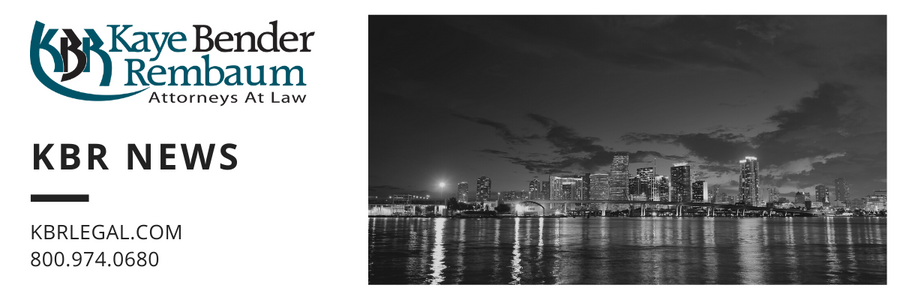Checklist to help you with Insurance, Things Change in your Family life!
Changes in your life or lifestyle mean you should update your auto, home and umbrella insurance coverage. You may find you can save money by dropping unneeded coverage (say, for a child who has left for college) or that you need extra insurance (say, for heirloom jewelry you’ve just inherited)
 Renovations to your main home or a new building on your property (say, a gazebo) can mean you’re underinsured and need to increase the value of the structures coverage on your home policy. This is especially important if you’ve put in a lot of money into renovation, or expanded your square footage
Renovations to your main home or a new building on your property (say, a gazebo) can mean you’re underinsured and need to increase the value of the structures coverage on your home policy. This is especially important if you’ve put in a lot of money into renovation, or expanded your square footage
You need a policy review if you’ve bought (or inherited) any jewelry, fine arts, furs or collectibles such as wines, instruments, coins, guns or cameras. These are items you may want to list separately, or it may be cheaper to include them under a “collectibles rider.” You also need revisions if your collectibles have appreciated in value.
It’s hard to believe, but people forget to take old cars off their policies when they trade in one car for another. If you have any motorized toys, such as all-terrain vehicles, boats, or jet skis, make sure that your underlying auto or home policies, as well as your umbrella, cover your use of these.
If your teenager starts driving or you let an au pair or nanny drive your car, you must add him or her to your policy. Before you buy a car specifically for this new driver’s use, check the impact on your premiums. Some carriers will let you assign a young driver to a clunker, while others assume a young driver is using most valuable car in your garage, making it cheaper not to add another car.
Your Kids Are Leaving Home
If your kids go to college out of town, call your auto insurer–they’ll still be on your policy, but the policy’s cost should go down. If they move out permanently, make sure to take them off your auto policy.
If you transfer ownership of your house, artwork, a car or any other asset into the name of a trust, limited liability company or family limited partnership, you need to add the entity as an additional insured on your policy. If you’ve transferred the home you live in to a trust for estate planning purposes, you want both your name and the name of the trust on the policy.
No matter what’s going on in your life, you should review your insurance coverage at least once a year. The easiest time to do this is when the renewal notices come. Your insurer (or agent) will notify you of changes or “amendments” to your policies, for better or worse. Read that new fine print, as it may mean you need to take action.
- Check for loose or leaky gutters. Improper drainage can lead to water in the basement or crawl space. Make sure downspouts drain away from the foundation and are clear and free of debris.
- Low areas in the yard or next to the foundation should be filled with compacted soil. Spring rains can cause yard flooding, which can lead to foundation flooding and damage. Also, when water pools in these low areas in summer, it creates a breeding ground for insects.
- Use a screwdriver to probe the wood trim around windows, doors, railings and decks. Make repairs now before the spring rains do more damage to the exposed wood.
- From the ground, examine roof shingles to see if any were lost or damaged during winter. If your home has an older roof covering, you may want to start a budget for replacement. The summer sun can really damage roof shingles. Shingles that are cracked, buckled or loose or are missing granules need to be replaced. Flashing around plumbing vents, skylights and chimneys need to be checked and repaired by a qualified roofer.
- Examine the exterior of the chimney for signs of damage. Have the flue cleaned and inspected by a certified chimney sweep.
- Inspect concrete slabs for signs of cracks or movement. All exterior slabs except pool decks should drain away from the home’s foundation. Fill cracks with a concrete crack filler or silicone caulk. When weather permits, power-wash and then seal the concrete.
- Remove firewood stored near the home. Firewood should be stored at least 18 inches off the ground at least 2 feet from the structure.
- Check outside hose faucets for freeze damage. Turn the water on and place your thumb or finger over the opening. If you can stop the flow of water, it is likely the pipe inside the home is damaged and will need to be replaced. While you’re at it, check the garden hose for dry rot.
- Have a qualified heating and cooling contractor clean and service the outside unit of the air conditioning system. Clean coils operate more efficiently, and an annual service call will keep the system working at peak performance levels. Change interior filters on a regular basis.
- Check your gas- and battery-powered lawn equipment to make sure it is ready for summer use. Clean equipment and sharp cutting blades will make yardwork easier.
DID YOU KNOW? Your homeowner’s insurance policy doesn’t cover flood damage. That requires a separate flood policy. Your homeowner’s policy could, however, cover other damage that is water related.
You visit your doctor for a yearly checkup… why wouldn’t you do the same with your insurance agent? An annual review of your insurance policies is recommended because your financial situation can change year to year. A review doesn’t have to be time consuming like most people think. If you haven’t been getting a yearly review, it makes sense to start now. There is little to be gained by carrying the wrong types or amounts of insurance and so much, potentially, to be lost!
Tags:
Building Maintenance,
Florida Rising Magazine,
Insurance,
Management News










 Only 1.4% of Florida’s lawyers appear among the exclusive
Only 1.4% of Florida’s lawyers appear among the exclusive  The Real Property, Probate and Trust Law (RPPTL) Section of the Florida Bar announced that
The Real Property, Probate and Trust Law (RPPTL) Section of the Florida Bar announced that  Danielle M. Brennan (pictured top left) is a Board Certified Specialist in Condominium and Planned Development Law. Ms. Brennan joined Kaye Bender Rembaum as an Associate Attorney in the Firm’s community association department in the Palm Beach Gardens’ office in April 2013. Ms. Brennan assists clients on all aspects of community association operations and enjoys leading presentations for managers and board members.
Danielle M. Brennan (pictured top left) is a Board Certified Specialist in Condominium and Planned Development Law. Ms. Brennan joined Kaye Bender Rembaum as an Associate Attorney in the Firm’s community association department in the Palm Beach Gardens’ office in April 2013. Ms. Brennan assists clients on all aspects of community association operations and enjoys leading presentations for managers and board members. Emily E. Gannon (pictured bottom left) joined Kaye Bender Rembaum in April 2012, and assists the Firm’s association clients on all aspects of community association operations. Emily is also a frequent lecturer on community association law, which includes leading seminars providing CEUs for property managers and certifications for board members.
Emily E. Gannon (pictured bottom left) joined Kaye Bender Rembaum in April 2012, and assists the Firm’s association clients on all aspects of community association operations. Emily is also a frequent lecturer on community association law, which includes leading seminars providing CEUs for property managers and certifications for board members. The Florida Bar has confirmed Firm Member
The Florida Bar has confirmed Firm Member 





 Rembaum’s Association Roundup
Rembaum’s Association Roundup
 For over 45 years,
For over 45 years, 


 Renovations to your main home or a new building on your property (say, a gazebo) can mean you’re underinsured and need to increase the value of the structures coverage on your home policy. This is especially important if you’ve put in a lot of money into renovation, or expanded your square footage
Renovations to your main home or a new building on your property (say, a gazebo) can mean you’re underinsured and need to increase the value of the structures coverage on your home policy. This is especially important if you’ve put in a lot of money into renovation, or expanded your square footage